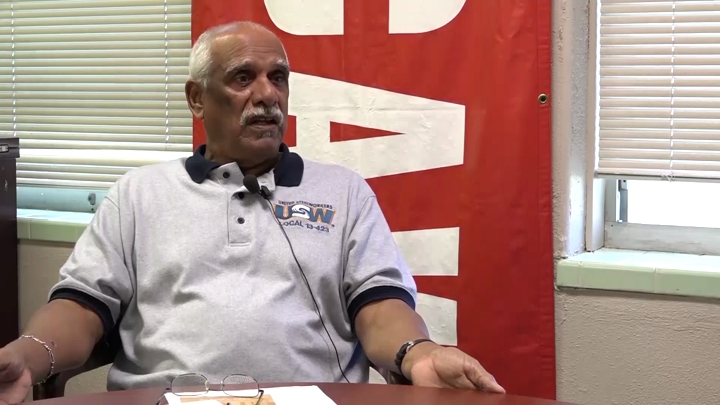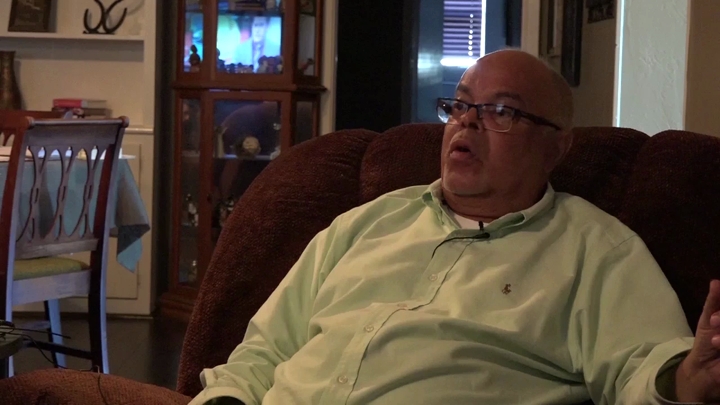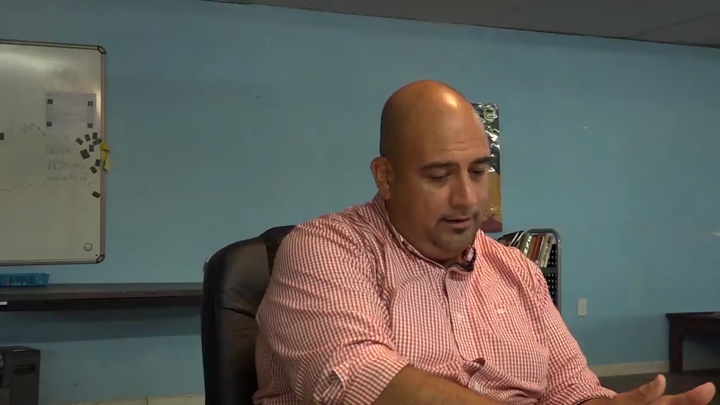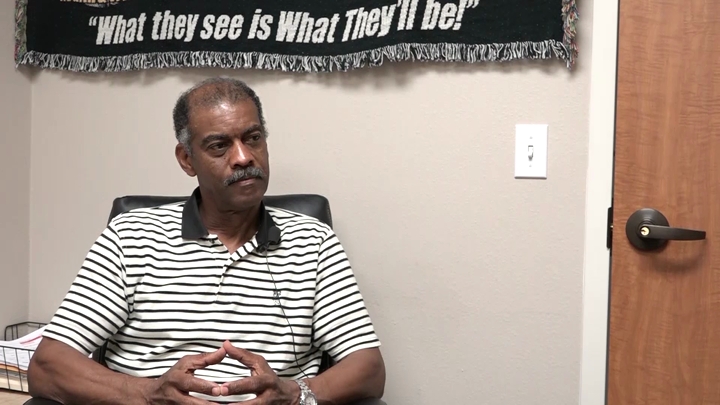Calyen / Parents and Childhood Experiences
sign up or sign in to add/edit transcript
Interviewer: What did your parents do for a living? Calyen: My mom was a homemaker. My dad was a plumber. Interviewer: Were there many plumbers in the black community? Calyen: No, no. Interviewer: He was one of the only? Calyen: Yes. Interviewer: How was his experience like being one of the only plumbers? Calyen: Well, he didn’t work in the Conroe area. His business took him to other towns. In the Conroe area, I can’t remember not too many licensed plumbers. They were plumbers that learned from someone else. The Onsworth family, they had plumbers out there, Woody and his dad. There weren’t too many other what we called licensed plumbers. Interviewer: Was your dad licensed? Calyen: Yes. Interviewer: So, he was able—he couldn’t work in Conroe, but he could work at other places? Calyen: Yes. Interviewer: In terms of socioeconomic status, how did your family’s socioeconomic status compare to others in the black community? Calyen: At that time, I thought we were rich because we had plenty of food. My mom would cook food and have me take it to other people that were less fortunate, but when I got older, you know, we were poor. We paid bills, had our bills, took care of business. We didn’t have to—never got evicted from a house, or bills, lights never turned off or water was never turned off. As far as having some ready cash, it was pretty much paycheck to paycheck. We had the basic things that we needed in our clothing and everybody had shoes on their feet. So, nobody went lacking. Interviewer: So, in comparison to other families in the community, were you even with most families or a little bit more economically secure? Calyen: That’s a good question because I thought everybody else was even. I just thought sometimes when we had excess, my mom would just distribute it. I guess, we were pretty much the same way as everybody else was. We just—maybe a little more blessed that particular day. Interviewer: Do you feel like the community was more connected in terms of providing—if you had excess, you said, your mom when she had excess, she would provide to others. Did you see that as commonplace during that time period? Calyen: That was a common thing because there were a lot of people who shared. People that had a lot would do something for the person that didn’t have a lot. It wasn’t like that person—that next-door that needed some sugar—you could come next door and say, “My mom said send me a bowl of sugar.” It was given to you and you take it back and give it to whoever sent for it and there wouldn’t be a lot of flak about it. Now, I can’t remember ever having to borrow any sugar. Not that I’m better than anybody else. It’s just something as a culture we don’t do anymore. Interviewer: In terms of infrastructure, I don’t know if you were able to go to the white neighborhoods, but you may know this. Was there a difference in infrastructure and quality of houses? Calyen: Sure. Infrastructure was completely different. We lived in a three-bedroom Jim Walter house that was about one thousand square feet and the homes up in—we were (inaudible) cut yards up in Tanglewood and other neighborhoods that needed their yards cut. Their living rooms—what some people might would call their playrooms or whatever. We didn’t have anything like that. It was just a living room and a kitchen, and the kitchen primarily was all in one. You cooked there and ate there and when you’d get to go to the other neighborhoods and where you would see how there would be a huge dining area with a table there and maybe in the kitchen, there would be a small table there. Yeah, it was altogether different.
| Interview | Interview with Henry Calyen |
| Subjects | Family |
| Family › Childhood Experiences | |
| Housing › Neighborhoods › Residential Segregation | |
| Geography › Geographic Disparities in Infrastructure | |
| Family › Parents | |
| Tags | sign up or sign in to add/edit tags |
| Interview date | 2016-07-06 |
| Interview source | CRBB Summer 2016 |
| Interviewees | Calyen, Henry |
| Duration | 00:05:05 |
| Citation | "Parents and Childhood Experiences," from Henry Calyen oral history interview with , July 06, 2016, Conroe, TX, Civil Rights in Black and Brown Interview Database, https://crbb.tcu.edu/clips/3355/parents-and-childhood-experiences, accessed February 17, 2026 |






